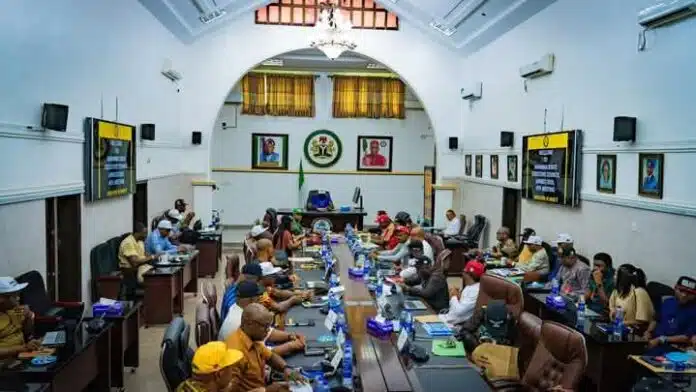By Izunna Okafor, Awka
As part of its landmark move towards transforming the energy landscape of Anambra State, the Anambra State Executive Council (ANSEC) has approved the establishment of the Anambra State Electricity Regulatory Commission.
This pivotal decision, reached during the Council’s meeting held at the New Government House (newly christened “Light House Awka”) on Monday, June 2, 2025, marks yet another significant stride towards achieving energy autonomy and enhancing power supply within the state.
The creation of the Electricity Regulatory Commission is a follow-up and direct response to the recently assented Anambra State Electricity Act, which empowers the state to establish and regulate its electricity market. The development aligns with the federal government’s Electricity Act of 2023, which decentralizes electricity regulation, allowing states to manage their power sectors independently.
The new Electricity Commission is expected to oversee the generation, transmission, and distribution of electricity within Anambra, ensuring efficiency, reliability, and sustainability in power supply.
Reacting to the development in an interview with this reporter, the State Commissioner for Power and Water Resources, Engr. Julius Chukwuemeka, lauded the establishment of the Commission as another transformative milestone of the Solution Government.
According to him, “The establishment of the Anambra State Electricity Regulatory Commission is another signal and pointer to Governor Soludo’s commitment to infrastructural development and economic transformation in Anambra State. This move will not only enhance our power sector but also stimulate industrial growth and improve the quality of life for our citizens.”
Engr. Chukwuemeka highlighted that the Commission would oversee the implementation of the state’s electricity policy, facilitate investments in the power sector, and ensure compliance with regulatory standards. He also emphasized that this move would attract private sector participation, leading to improved infrastructure and service delivery in the state.
“Our focus is on sustainable solutions. By integrating renewable energy sources like solar power into our water projects, we’re not only ensuring consistent service delivery but also promoting environmental sustainability,” he sated.
This reporter, Izunna Okafor, recalls that under Governor Chukwuma Soludo’s administration, the Ministry of Power and Water Resources has recorded significant achievements in the power sector. Notably, the state government has resolved longstanding Right of Way and land acquisition issues, facilitating the swift execution of federal intervention projects such as the ongoing construction of the 132KV Umuchu Substation and the 133KV Aguleri Substation. These projects are poised to bolster the state’s electricity infrastructure, ensuring more stable and widespread power supply.
In addition to infrastructural developments, the state has made remarkable progress in extending electricity to previously underserved areas. Communities in Anambra West and parts of Anambra East Local Government Areas, including Eziagulu-Otu, Enugwu-Otu, and Mkpunando, have been connected to the national grid for the first time, bringing an end to decades of darkness and fostering socio-economic development in these regions.
The Soludo administration has also prioritized the modernization of street lighting across the state. Over 25,000 diesel-powered streetlights have been converted to solar-powered alternatives, significantly reducing operational costs and promoting environmental sustainability. This initiative not only enhances public safety but also contributes to the state’s efforts in combating climate change.
In the Water sector, the Ministry, under Governor Soludo, has also embarked on an ambitious program to rehabilitate and reactivate moribund water schemes across the state. To date, over 68 rural water schemes and 15 small-town water schemes have been revitalized, providing clean and potable water to numerous communities, in addition to the rehabilitation of 98 hand-pumped and solar motorized boreholes in flood-affected local governments in the state.
Urban water projects, such as the Greater Onitsha Water Supply Scheme and the Otuocha Water Scheme, have also seen significant progress, with completion rates of 80% and 85% respectively, in addition to the installation of multiple power sources to ensure uninterrupted water supply. These efforts also testify of the administration’s commitment to improving public health and hygiene standards.
Commissioner Chukwuemeka emphasized the importance of these developments, stating, “Access to reliable electricity and clean water is fundamental to the well-being of our people and the economic growth of our state. The strides we have made in these sectors are indicative of the Soludo administration’s dedication to building a livable and prosperous homeland.”
The approval for the establishment of the Anambra State Electricity Regulatory Commission is expected to attract investment, create job opportunities, and enhance the state’s capacity to meet its growing energy demands.
The development has also attracted a chain of positive reactions from ndị Anambra both within the state and in diaspora, in addition to the outpouring of commendations from netizens who view the move as one that will drive a new era of efficiency and innovation in Anambra’s power sector.

























